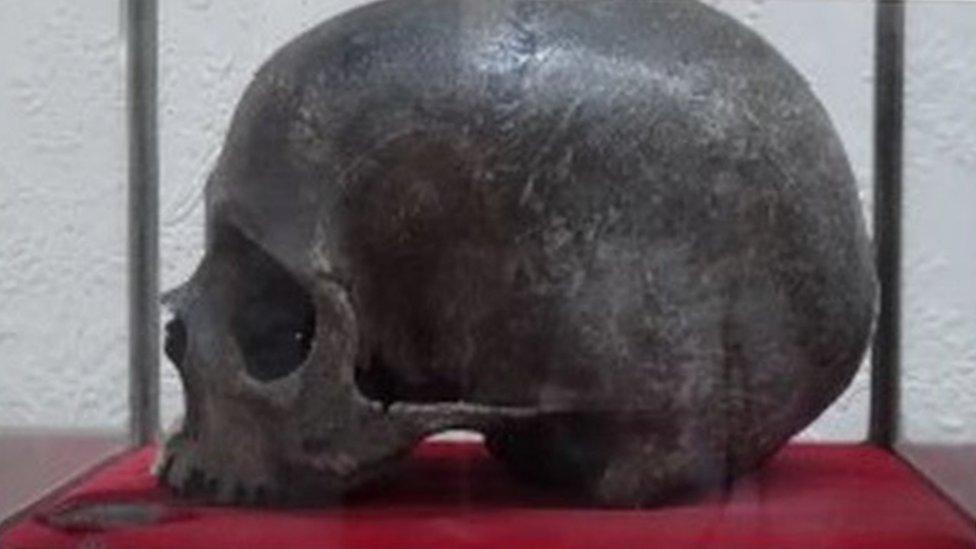Jesus manger: Relic returns to Bethlehem in time for Christmas
- Published
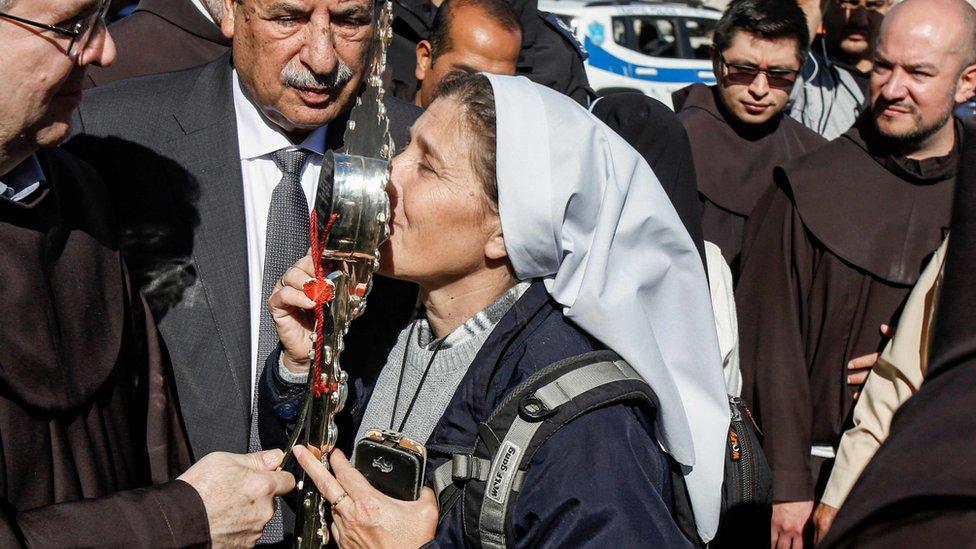
The relic's return coincides with the start of Christmas celebrations in Bethlehem
A fragment of wood believed to have formed part of Jesus' manger has been returned to Bethlehem after more than 1,000 years in Europe.
Pope Francis ordered the return of the thumb-sized relic from Rome's Basilica of Santa Maria Maggiore as a gift.
The relic had been in Rome since the 7th Century.
It was briefly put on display in Jerusalem before continuing its journey to Bethlehem to coincide with the start of Christmas celebrations there.
The relic, encased in an ornate stand, was welcomed to Bethlehem on Saturday by a procession of marching bands and taken to the Church of St Catherine, next to the Church of the Nativity where tradition says Jesus was born.
How important is the relic?
Some Christians believe the tiny piece of wood formed part of the crib that Jesus lay in after being born.
Custodia Terrae Sanctae, the custodian of Catholic religious sites in the Holy Land, said the Patriarch of Jerusalem, St Sophronius, donated the relic to Pope Theodore I in the 7th Century., external
It said the relic had since been kept on display in Rome's Basilica of Santa Maria Maggiore, where a "very large number of pilgrims from all over the world" went each day to "venerate it".
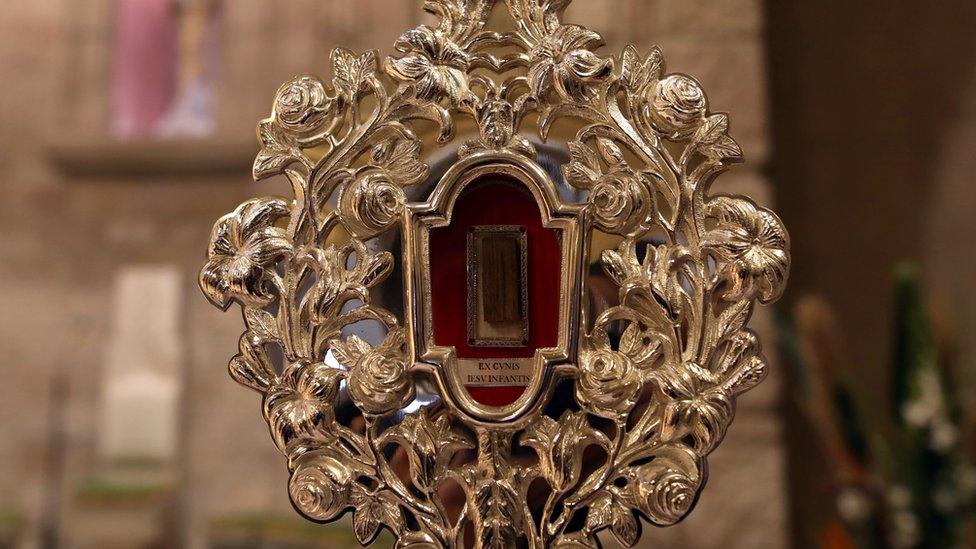
The relic was briefly displayed in Jerusalem before being transferred to Jesus' birthplace
While most of it has remained in Rome, the return of the small fragment was celebrated by Christians in the region.
"My heart is beating. I'm really crying from joy for this event and thankful also for the Pope, for this kindness that he brought to Bethlehem," Louisa Fleckenstein, a guide for pilgrims visiting the Holy Land, told AP news agency.
But some were underwhelmed.
"When we heard that the manger is coming back we thought it would be the whole manger, but then we saw it," Sandy Shahin Hijazeen told Reuters.
Why now?
The Vatican has described the return of the relic as a gift from Pope Francis.
Bethlehem's mayor, Anton Salman, told Palestinian news agency Wafa that its return followed a request from Palestinian President Mahmoud Abbas during a recent visit to the Vatican.
Its return coincided with the beginning of Advent, a four-week period leading up to Christmas.

Crowds celebrated the relic's return to Bethlehem
Christians make up an estimated 1% of the Palestinian population in the West Bank, Gaza and East Jerusalem, but Bethlehem is a popular place for Christian pilgrims from around the world, particularly at Christmas time.
Tens of thousands of Christian pilgrims are expected this month, according to Wafa.
"To celebrate Christmas with the presence of part of the manger in which Jesus Christ was born will be a magnificent and huge event," said Amira Hanania, a member of Mr Abbas's Higher Committee of Churches Affairs.
Is this unusual?
Dr Yisca Harani, an Israeli expert on Christianity, described the relic's return as an "inversion of history".
"A thousand years ago, Rome was busy collecting relics from the East to build itself up as an alternative Jerusalem. Now, Rome is strong enough that it can return relics to Jerusalem and Bethlehem," she told Israeli newspaper Haaretz.
The relic of the manger is not the first religious artefact to be returned by the Pope.
Earlier this year, he gave some of the purported bone fragments of Saint Peter to the leader of the Eastern Orthodox Church. He later said the move was intended to bring the Orthodox and Catholic churches together.

You might also be interested in:
Is Pope Francis kissing goodbye to ring tradition?
- Published19 June 2018
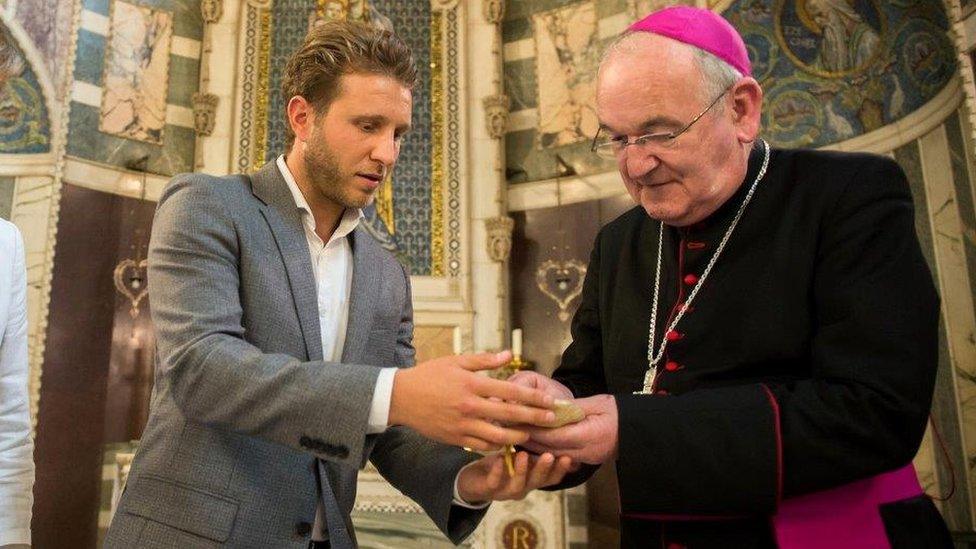
- Published26 March 2019
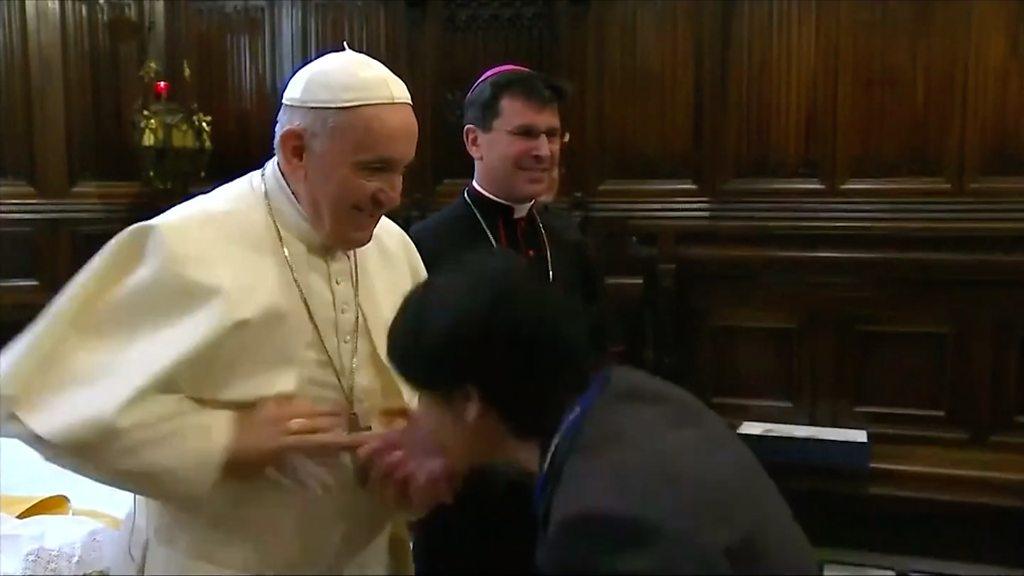
- Published29 May 2016
